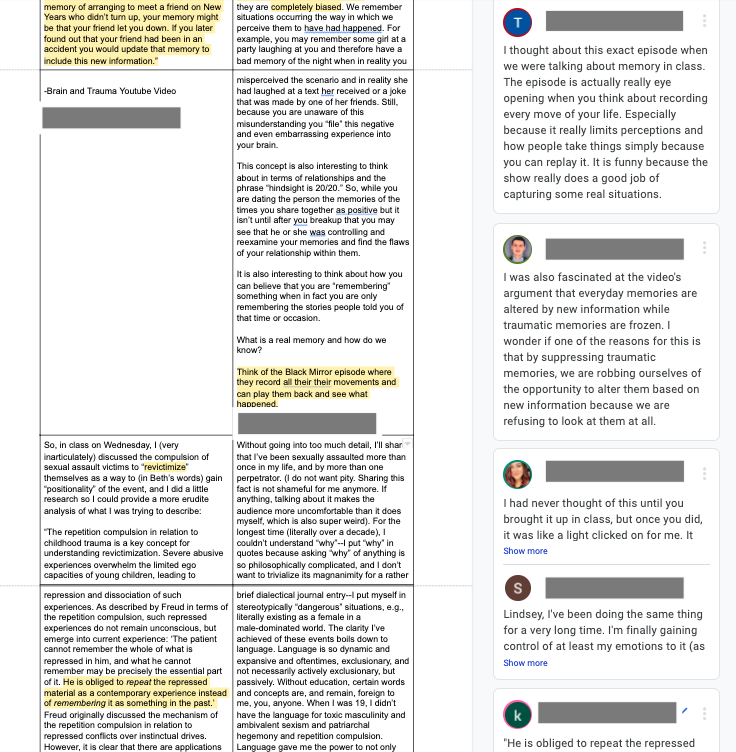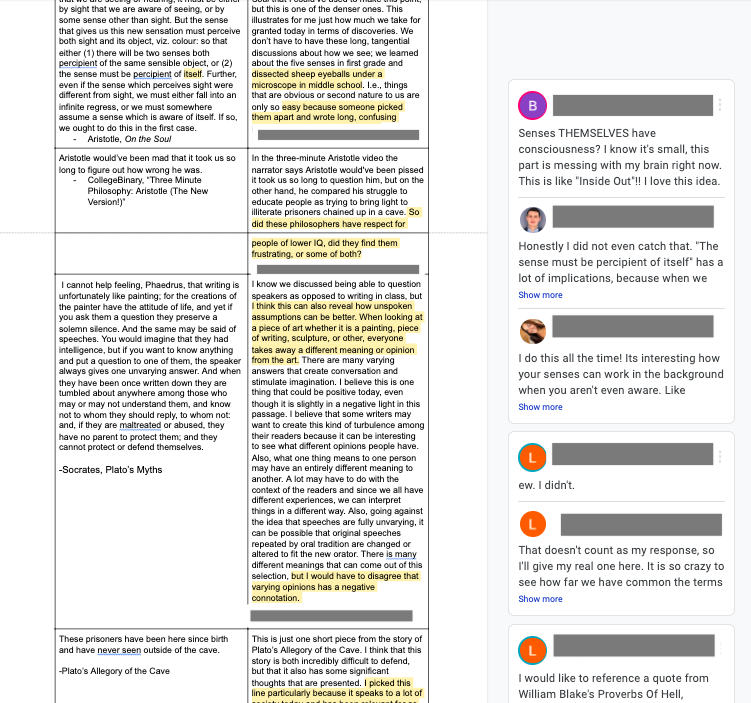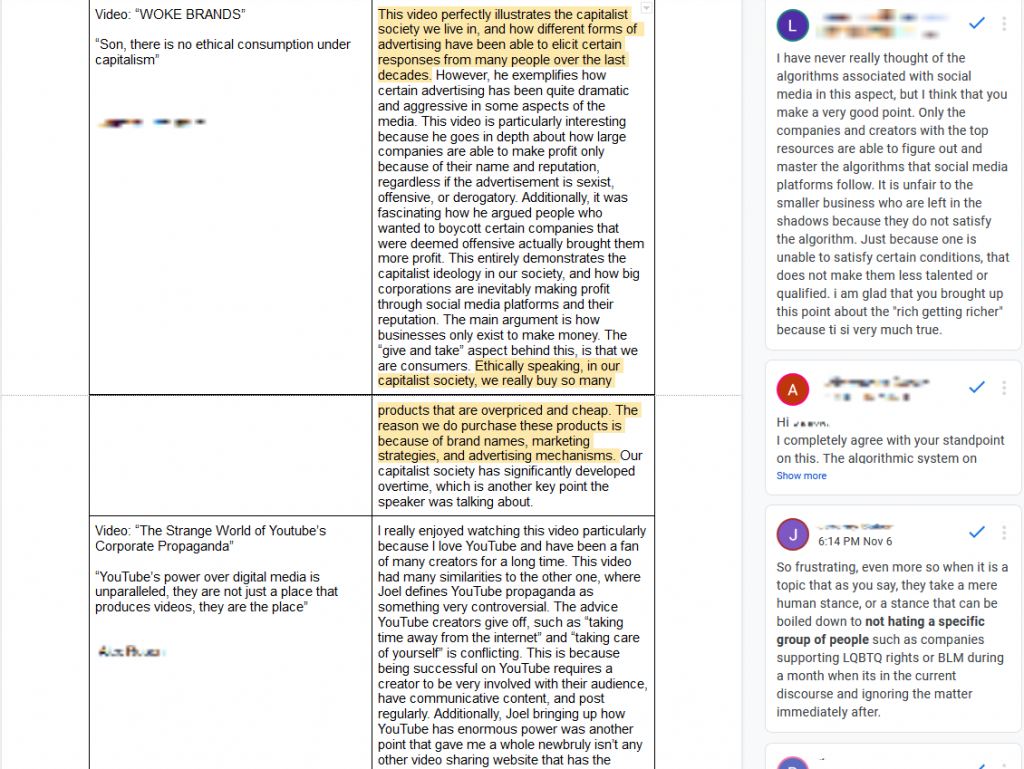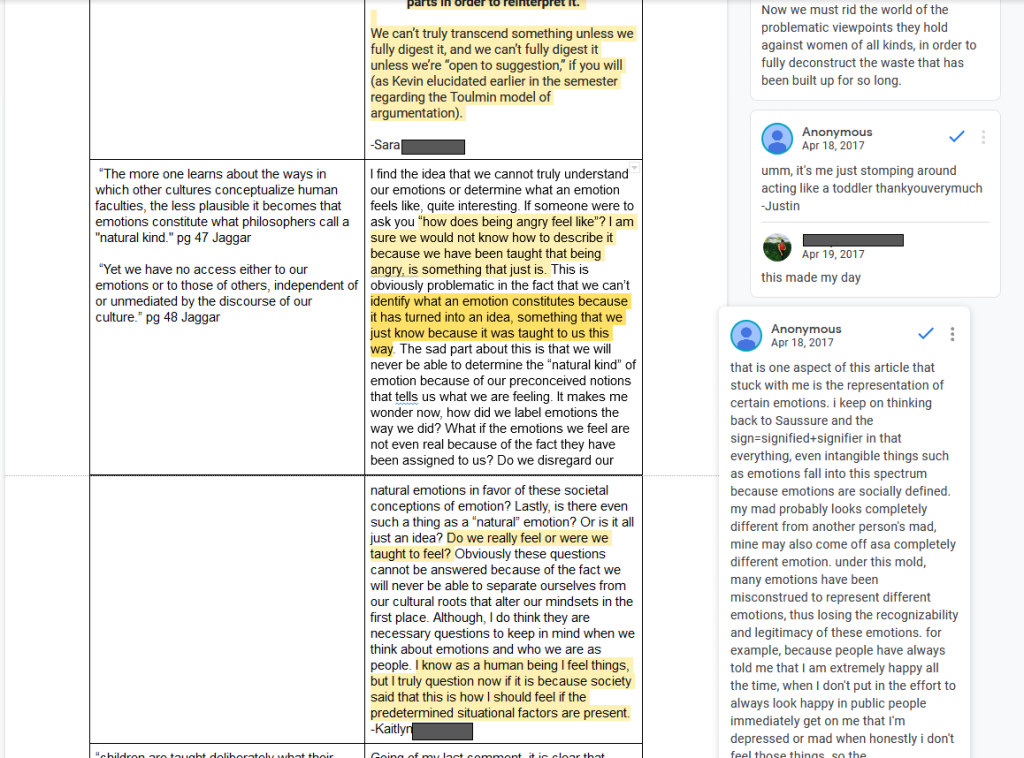Overview
As noted in the schedule, once a week you will be participating in a dialectical journal about that week’s readings, videos, ideas, etc.
Dialectical journals are collaborative spaces where you should share your thoughts and interact with one another to generate ideas and connections. These journals are your opportunity to engage with the ideas of the course and get real responses from others, to benefit from others’ perspectives, to recognize intersections between the work of this and other classes, and to ground the theoretical in your lived experiences.
The journals themselves are kept in a shared Google Drive folder.
Logistics
Each week, you will be responsible for 4 contributions to the journal. Your contributions should consist of at least 2 entries; the remaining 2 contributions can be comments. (You could just decide to write 4 entries, but I hope you’ll take advantage of the conversational nature of this space.)
Entries Vs Comments (Types of Contributions)
- Entry: a quote / paraphrase of a text or something that was brought up in discussion during your group meetings (left side of notebook) and a response to a quote / paraphrase (right side of notebook).
- Comment: a response to a peer’s entry (a comment in the margin).
Again, at least 2 of your 4 contributions must be in the journal itself (a quote in the left column and your thoughts on that quote in the right column). You are always free to add more than the minimum required participation.
Make sure that you include your initials or name after your entries in the journal, to make sure you get credit.
What to Actually Write
As you think about your contributions, here are some possible approaches:
- Draw connections between texts, discussions, media (noting intriguing points of consensus and dissensus)
- Play the believing and doubting game with a text (especially as an approach for finding ways to see value in texts you “hate” or problems in texts you “love”)
- Place a reading in context (perhaps by engaging some of the work to which it responds or considering the historical moment of its production)
- Reflect about how your own experiences have shaped your reading of the text (either informed by work in another class or by your life outside school)
- Highlight unanswered questions that a text raises and speculate about how you might begin to answer them
- Critique the limitations of an argument (what issues / perspectives does it exclude? How might the argument be made more complex or nuanced?)
- Raise questions about aspects of the reading that are unclear or difficult to understand
Deadlines
Your work in the dialectical journal is due by 11:59PM every Sunday (Weeks 1-10).
Examples (To Help Visualize This)



